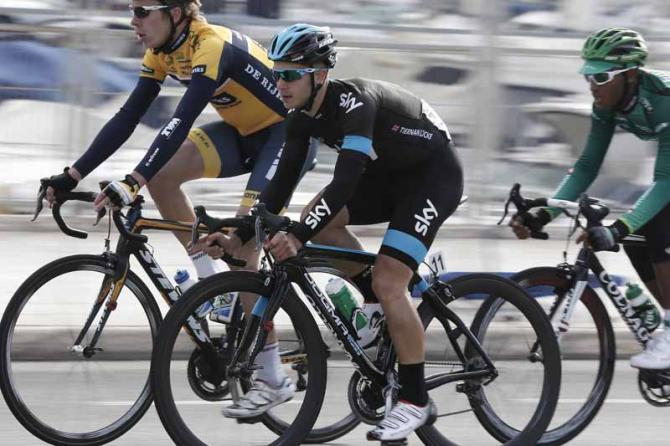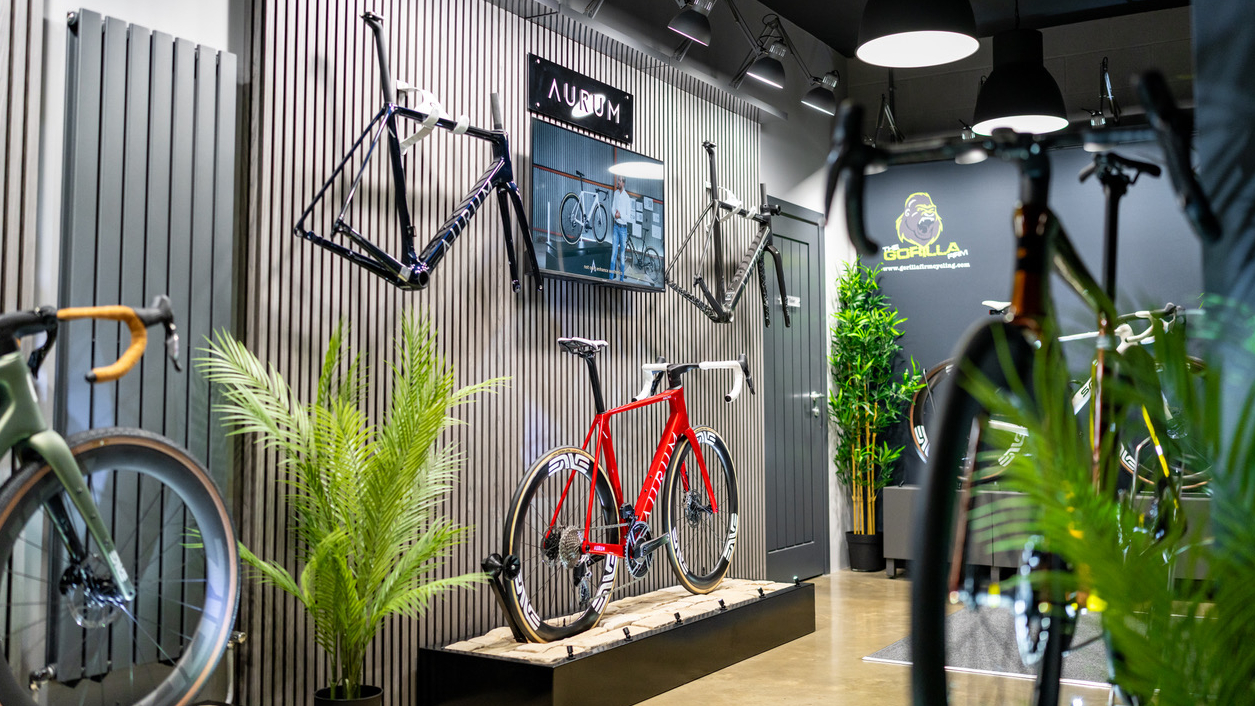An exclusive interview with Jonathan Tiernan-Locke
British rider reveals the back story to his Biological Passport violation ban
The latest race content, interviews, features, reviews and expert buying guides, direct to your inbox!
You are now subscribed
Your newsletter sign-up was successful
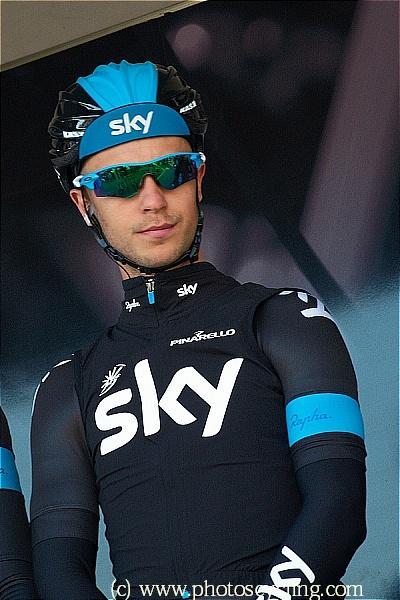
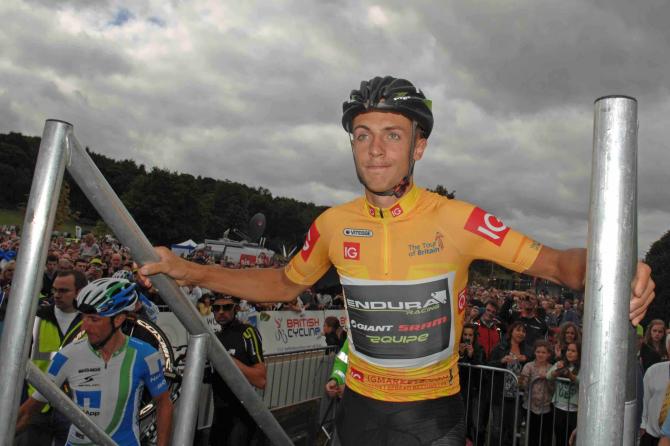
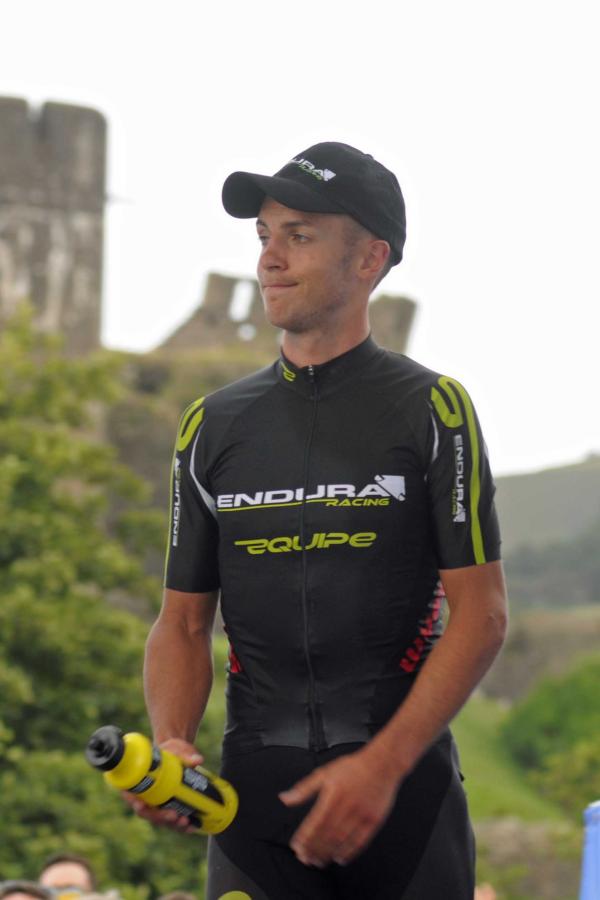
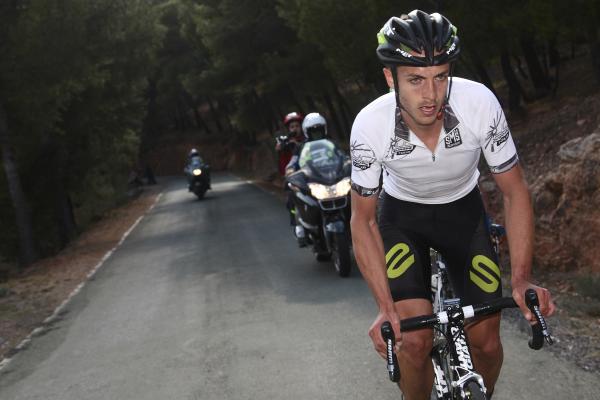
Jonathan Tiernan-Locke has revealed that he may not return to racing as a professional rider when his two-year ban for a UCI Biological Passport violation ends on December 31, 2015.
Speaking to Cyclingnews after attending the Exmoor Beast sportive event near his home in Devon, the British rider reveals the personal anguish he has gone through as he tried to fight his case.
He gives his thoughts Team Sky's level of support during the disciplinary process, reiterates that he never doped and questions the validity of anti-doping procedures compared to penal law, where the athlete must prove their innocence.
Cyclingnews: Can you take me back to the moment the news of the UCI’s initial query into your passport readings were made public on Sunday September 29, 2013?
Jonathan Tiernan-Locke: It was 11 days before, when I received a letter. I took a couple of days, told my parents almost immediately and then I told the rest of my family. Then two days later I told Team Sky and spoke to the doctor there. The immediate response was ‘ok fine, we’ll deal with this. You’re going to Worlds.’ But there was a turnaround almost within a week. There must have been a board meeting or something and very quickly they came back to me. They didn’t want me to fabricate an excuse for not racing, like having an injury, but they advised me to say that I wasn’t feeling up to it. Then I got a call from my agent and he told me that it was going to come out on the morning of the 29th.
That was really tough for me and when I got the email, I didn’t get out of bed for days. It sounds like a cliché but it puts you in a really dark place. It was one of, if not the worst time, of my life.
I guess the team wanted to find a way to navigate around the situation but they wanted me to be transparent, so they told me to keep it vague. I was told what to write on Twitter. I don’t think there was a leak from the UCI, I was just a number but that number conveniently went to David Walsh. I’m not sure how that came about and there are various theories.
The latest race content, interviews, features, reviews and expert buying guides, direct to your inbox!
CN: Does that really grate with you. Does it really matter how it came out?
JTL: Yes, it does. Maybe it doesn’t matter now but if you look at the other cases it’s not made public until it’s needed to be. Mine was out there from day one and I was in the court of public opinion. From that point on I just went into retreat. I thought that it was best to keep a dignified silence. I’m not a person who is going to get on Twitter and start preaching. I was trying to fight but well aware that people were going to make their own minds up. It was a difficult time.
CN: Did you think that you were going to be cleared?
JTL: One hundred per cent. At first it was a big shock but I thought that when I got the letter [of notification of a possible Biological Passport violation] I could deal with it out of the public eye, get it cleared and then return to racing. There are other riders out there that have had these letters, it’s been kept private, and then the letters have gone away, quite high-profile people actually. I thought we could do that even before we had some serious help.
CN: How did Team Sky treat you during the whole process?
JTL: My opinion is that they were quite hands off. Whatever happened with that initial leak, and I’m not that interested in finding out now but at first it was ‘we can help you with this’ and then it was ‘we’re going to take more of a backseat and let the process happen.’ I did speak to Dr. Steve Peters at one point and I think that was more of a check up to see that I wasn’t on suicide watch but maybe there was another agenda there so he could come to a conclusion on me. I went to another training camp [December, before the UCI launched their formal charges of a violation] and I had a kit fitting that December but there was this elephant in the room because I was doing these long training days and I wanted people to know that I was still serious but it was a strange time because people were talking about race programmes and I was still in the dark.
CN: Can you take me through the steps from the moment the UCI had originally rejected your defence to where they moved forward with a passport case against you?
When I found out what I was up against, I did as much research as possible because I wanted all the information. The team told me that if the UCI didn’t accept my response and found me guilty of a passport violation then it was the same as an A positive. I said that’s not the case and that I could have a hearing and even eventually take it to CAS. I wasn’t there to argue but I told them it wasn’t an A sample, and therefore the burden of proof didn't lie with me. It turns out that it did.
CN: What about the team’s reaction when you were handed the two-year suspension for doping?
JTL: I was originally told that it would take two weeks or so for a verdict. I was told I’d have 30 days to consider an appeal without the verdict being made public. Then within about two days I’m at a barbecue from a friend’s house and I notice I’ve had a missed call. Instantly I think it’s the UCI and then in the next few moment I get an email saying ‘Dear Jonathan we will be publishing the decision in the coming minutes.’ And then there’s a press release on the Team Sky website. So instead of having 30 days I have about 24 hours. That was the first I’d heard of the verdict. I got a letter later from the UCI. I found out not long before Twitter.
I get the team’s reaction. They’re a massive company and they have an outward facing image and public persona means everything. So I see why they would want to distance themselves and appear transparent but I just think that other team’s athletes, like you’ve seen in the [Roman] Kreuziger case, have given more support. There was no support.
CN: What did you make of Brailsford’s comments? When asked for his opinion on your case, he said that there was no place for cheats.
JTL: I’m with him on that. But what am I meant to do, protest more? And then what are people going to think? I agree with that sentiment and he’s got to be seen to be saying the right thing but it’s difficult to take from my perspective.
The toughest moment, the alternative scenario
CN: From the moment of the notification to the verdict, what has been the toughest moment for you?
JTL: The verdict was really hard to take because we – my legal experts and team – were confident. My QC was awesome and they were confident. It was a Mickey mouse court though. If this was a serious court this case wouldn’t have gone before a jury. Look at the weak terminology they used. We thought we were onto a winner. I didn’t want to sound over confident and say which races I was going to come back to but it was a huge blow. I knew though, the moment my agent [Andrew McQuaid] called me, that by the tone of his voice it was … shit.
CN: You’ve called it a Mickey mouse court, once here and again in an interview with another publication, and you’ve said their argument is weak but they described your passport reading as “wildly abnormal” and UK Anti-Doping (UKAD) stated in their decision that “the abnormalities in the sample were consistent with the use of an erythropoietic stimulant”. That doesn’t sound like a weak verdict. That sounds pretty absolute.
JTL: Yes, and that piece of data is pretty damning on its own but if you also bring in the sample taken 48 hours later it seems like they were very closed to the possibility of an alternative scenario. We were trying to put across that it’s not just black and white and that it’s not a doping scenario. With a highly regarded haematologist that we had, obviously they couldn’t rubbish his evidence, but there were two scenarios, but in my opinion they were automatically leaning towards the doping one.
CN: But they also dismissed the basis of your defence, which was based on you drinking alcohol. They said, “there is no evidence for a plasma volume reduction after alcohol consumption.”
JTL: Well we said there was. I think when our haematologist has prepared lightly on this part because we left that it was a given. Their argument was that if they were to look at the other sample, and ultimately they didn’t …
CN: What did you make of the UKAD statement in which they also said, in relation to your drinking defence, that they didn’t believe you would drink that close to a major race?
JTL: I think that’s naïve on their part. I think I know my body and how to control. They didn’t take into account that I’d just won a big race. I’d a girlfriend at the time and she had just had a new job and a promotion and it was a celebration. It’s Thursday, midweek. I’m not the protected rider for the Worlds. Maybe it’s ungrateful to the selectors but it’s part of who I am. I go out and sometimes have a drink and sometimes it goes too far but for them to say it was perhaps unlikely … But do they know me?
The court of public opinion
CN: You mentioned a ‘court of public opinion’. How do you feel like you’ve been judged in that arena?
JTL: To be honest I’ve not paid too much attention to it. It’s not constructive. What am I going to get out of it? When the leak first came I made the decision not to start getting into battles with trolls on Twitter and I’m not going to start preaching. I’ve had overwhelming support from friends and family, and people in the peloton. And also from some people who wouldn’t want to stick their heads above the parapet for fear of receiving criticism. When it comes to reading articles, every time I read a story on Cyclingnews whether it’s a race or a rider story it would take just a few comments before a doping scenario was raised.
CN: But you’re aware of the term and when you had a successful spell in 2012 people were judging you?
JTL: Yes, I remember it was trial by Youtube but all I could say at the time was UKAD have my address so they could come around and test me. I wasn’t on the passport but I wasn’t hiding away and living in a caravan.
CN: Are you bitter?
JTL: I have been but it’s not constructive and I’d much rather put my energy into moving forward. Don’t get me wrong I have had some shit days, not recently maybe, but when it first came out I was definitely bitter. It was my reputation and I felt I was up a creek. Then the UCI rejected my initial response and then I just wanted to get tooled up and fight.
CN: How are you coming to terms with the label you now have as a drug cheat?
JTL: It’s easier for me with the controversy surrounding the passport. If I had been cheating and I had an A sample positive then things would be a lot different. With the passport being controversial, the support I’ve had has kept me going and time has helped. I’ve done a few other things and I’ve kept involved in cycling, especially locally, with training and some coaching. People have got in touch with me, even recently and thought that I might be swinging from the rafters but that couldn’t be further from the truth. I’m chilled out and I’m a bit of a different person I guess.
CN: Were you ever offered a reduced sentence?
JTL: I got this generic UCI letter that said something like, if you agree to everything now your sentence could be reduced and could start today. That went straight in the bin and then there was a chance to provisionally suspend myself and I didn’t do that out of principle. I had the agreement with Team Sky not to race anyway.
CN: You said that the passport is controversial. You rightly said that a positive A sample is not like a passport case, although going forward that’s the UCI’s plan, but the Passport programme is also ratified by the World Anti-Doping Agency (WADA) and – this isn’t proof of perfection – it’s never lost a case even in the Court of Arbitration for Sport (CAS). It has a 100 per cent record.
JTL: It does but I think that’s because it’s so heavily weighted against the athlete. I can’t comment on other cases, and I don’t know the riders or all the details, although I do know some of the procedures. But let’s take an extreme example and take someone on death row. Would the passport stand up? The answer is no. The decision was that my values were either from a blood transfusion or blood boosting agent during the Tour of Britain. Now during that race I’m getting piss tested every day I’m in yellow. That’s about four days. I’m not going positive but their reasoning for that was because the Tour of Britain tests weren’t screening for EPO. Well in my mind that’s pathetic. The only things they should be screening for are things like EPO. What are they testing for? Amphetamines? We’re not in the 1960s or 1970s.
There was also no target testing. My next test was maybe 10 weeks later. Then I had a while when I was not racing but there was no target testing and we argued that. We also argued that they should look at the test that was taken 48 hours later but they wouldn’t because it wasn’t done on the same machine.
CN: What were the costs of a possible appeal and why didn’t you want to give every possible penny into potentially clearing your name?
JTL: Potentially an appeal to CAS could have run into the hundreds of thousands. Remember that a few days work back when addressing the original UCI letter cost me well in excess of £20,000. Tip of the iceberg. Of course I incurred significant costs in the months preceding my hearing. Funding an appeal would have meant selling assets that I have held since long before Team Sky, and that was something I was not prepared to do. One of these was a joint venture with my brother and I had to think logically, not just with my heart. With no guarantees of success in appeal or assurance of a future contract the risk was simply too great.
Head held high
CN: What’s been the hardest part of your life you’ve lost in the last year or so?
JTL: It’s been my career and my reputation. I don’t ask for sympathy but there’s been a lot of support but maybe my reputation was the biggest loss. It was part of who I was and I saw myself doing it for years to come.
CN: What would you say to people who had doubts about you when you were winning in 2012 and then when the UCI announced their case, would turn around and say ‘I told you so.’
JTL: What can you say to those people? It fits very nicely with their thinking. They’re the ones that don’t know me and don’t know my path through cycling, my less than consistent efforts before and the changes I’ve made in my life. Whether positive or negative, what can I get out of reading those kinds of things? I’ve been through enough shit and I don’t need to seek out some more.
CN: What are you going to do next?
JTL: I’m keeping fit and doing some riding but some projects have come out of the woodwork. I’m going to do some coaching and there’s some potential race management as well. That’s why I’m in two minds over whether I want to come back to racing. I don’t want to get too deep here but my life has always been rocky, it’s always been unexpected. I’m not taking this too hard because I can’t re-visit that part of my life again. I went on a sportif this weekend and I chatted to people on the route and there wasn’t any shit from anyone. I went there with my head held high. If I was a doping athlete I couldn’t have done that.
Daniel Benson was the Editor in Chief at Cyclingnews.com between 2008 and 2022. Based in the UK, he joined the Cyclingnews team in 2008 as the site's first UK-based Managing Editor. In that time, he reported on over a dozen editions of the Tour de France, several World Championships, the Tour Down Under, Spring Classics, and the London 2012 Olympic Games. With the help of the excellent editorial team, he ran the coverage on Cyclingnews and has interviewed leading figures in the sport including UCI Presidents and Tour de France winners.
